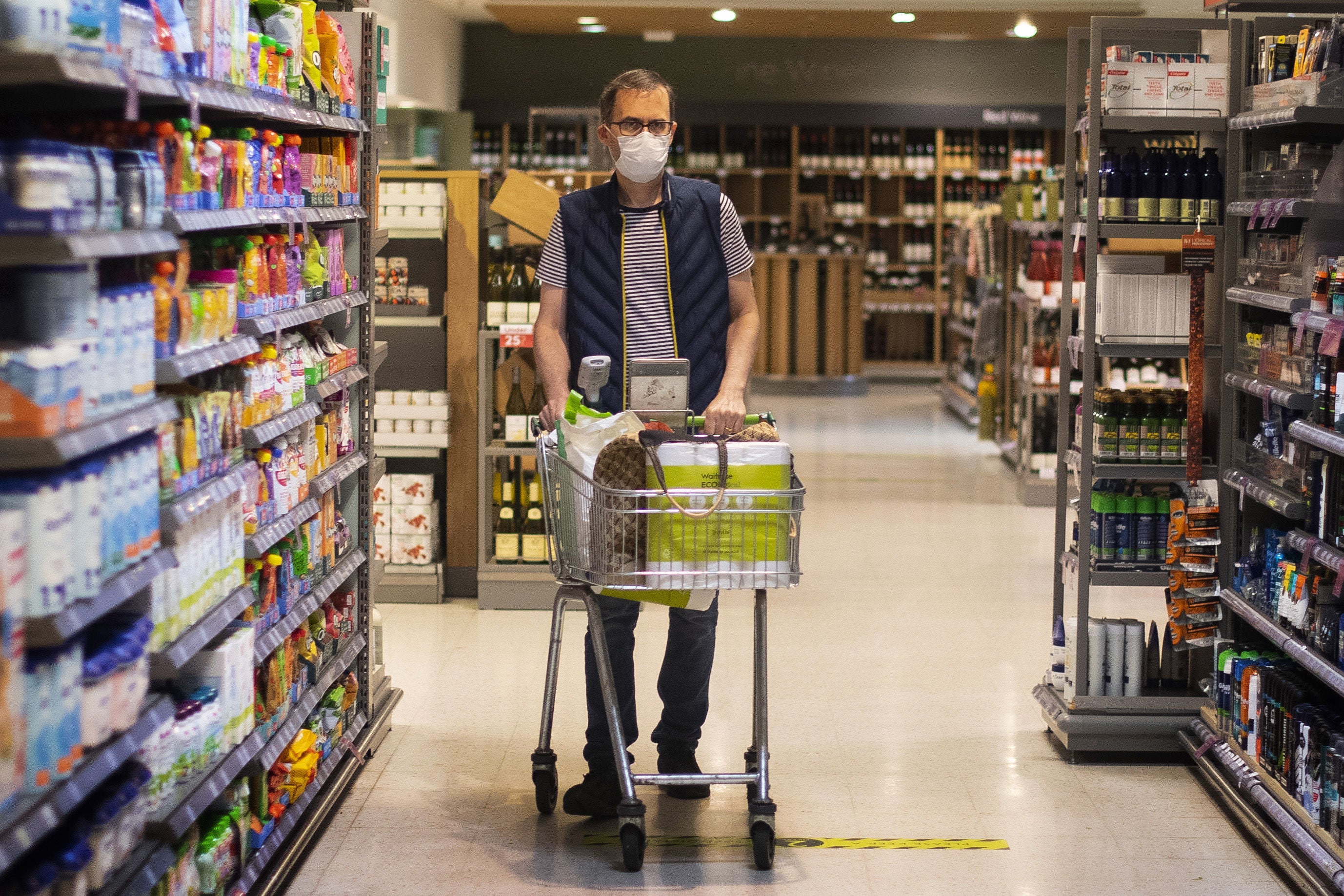Shoppers stock up on mouthwash and shoe polish as lockdown eases
Supermarket sales down slightly on last year as shopping habits begin to return to normal

Your support helps us to tell the story
From reproductive rights to climate change to Big Tech, The Independent is on the ground when the story is developing. Whether it's investigating the financials of Elon Musk's pro-Trump PAC or producing our latest documentary, 'The A Word', which shines a light on the American women fighting for reproductive rights, we know how important it is to parse out the facts from the messaging.
At such a critical moment in US history, we need reporters on the ground. Your donation allows us to keep sending journalists to speak to both sides of the story.
The Independent is trusted by Americans across the entire political spectrum. And unlike many other quality news outlets, we choose not to lock Americans out of our reporting and analysis with paywalls. We believe quality journalism should be available to everyone, paid for by those who can afford it.
Your support makes all the difference.UK shoppers stocked up on mouthwash, shoe polish and hair products as households were allowed to socialise again.
New data from analytics company Kantar indicates that people have begun to return to their pre-pandemic buying habits, making more regular trips rather than a big weekly shop.
Overall supermarket sales were down slightly compared to a year ago when the first wave of Covid-19 saw panic buying of essential items.
Sales in the 12 weeks to 16 May dipped 0.4 per cent to £31.3bn but remain £3.8bn higher than before the pandemic.
Co-op and Iceland supermarkets endured the biggest sales slump, with Lidl and Aldi enjoying the largest rises.
Fraser McKevitt, head of retail and consumer insight at Kantar, said: “As lockdown eases, people are returning to more normal habits and we can see that reflected in grocery sales.
“Many of us this time last year were eating all our meals at home and we bought extra food and drink as a result.
“Now we're seeing take-home grocery sales dip versus 2020 as people are able to eat in restaurants, pubs and cafes and can pick up food on the go again, grabbing a sandwich, for example, while they’re out and about at the weekend.”
Shoppers also felt more confident heading to stores again, with 58 million more visits to supermarkets compared to May last year. The biggest growth was seen in London, where trips were up by a quarter.
The average basket size per shop has fallen for three consecutive months to £22.82, the lowest level since before the pandemic and restrictions hit.
Online grocery shopping also fell from 13.9 per cent of total spend in the sector to 13.4 per cent – although it remains higher than before the crisis and the number of customers heading to independent and convenience stores also dropped.
Additional reporting by PA
Join our commenting forum
Join thought-provoking conversations, follow other Independent readers and see their replies
Comments